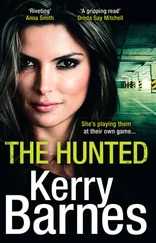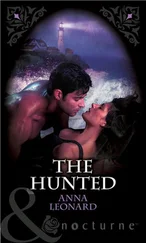“Ma’am,” he said, “my name’s Sully Carter, and I work at a newspaper in Washington. I was looking for the person who discovered Russell Waters’s body after he died last year. I’ll drive all the way back into town to the liquor store, come back, and leave a bottle of bourbon in your mailbox if that’s not you.”
***
“You don’t have to take your shoes off,” she was saying, looking back over her shoulder, turning the lights on in the small front room. “Jasper. Sit. Now .”
Sully and the dog both did as they were told. The dog, a country mutt with a little pit bull to him, wasn’t happy about it but settled by the couch.
Standing by the door, taking two steps inside, Sully saw that it was comfortable but basic. An upholstered couch with a faded throw neatly folded over the back. A recliner, television, newspapers and magazines in a rack. The paneled walls held family pictures, some art-fair-quality paintings of the prairie, buffalo in the distance. The kitchen and a dining nook were just past that. Sully, mindful of Jasper, asked if he could come to the dining nook.
“Yep,” she said. She was in the kitchen. She’d put the pistol, an old-school six-shooter, on the countertop. He could hear cups being set down.
“I don’t want to interrupt dinner if-”
“We call it ‘supper’ out here. I work overnight. Shift at the hospital starts at ten. You can eat with me or watch.”
“Sure, I’ll-”
“You can have spaghetti. If you don’t like that, you can have spaghetti.”
“I’ll go with the spaghetti.”
He pulled one of the hardback chairs out from the table and sat. His backpack, notebook, recorder, everything was still in the car. There was not a chance in hell he was going back out there to get it. He was in -for whatever reason-and he was not about to break the fragile spell that put him here. He looked at the dog. Jasper was losing interest.
“Hope I didn’t spook you,” he said. “I apologize, following you around to your property from the other place.”
“I don’t spook. It was reasonable tracking. You want water, coffee?” She looked at him, her black eyes steady. They didn’t seem to take in any light at all. “Or whiskey, since you offered to fetch it.”
“Ah, water would be great. Dry throat. And if you’re having a splash of God’s own, I’d be obliged.”
She did not answer but turned back into the kitchen and busied herself. The kitchen was as narrow as a hallway. If she turned sideways, she could have one hand in the sink and the other in the fridge. He heard the tick tick tick of a gas stove, the whoosh of it catching, pans rattling. When the water was boiling, and he could hear (and smell) the sizzle of ground beef going into the skillet. She came back to the table with four glasses. Two were tall, brimming with ice and water. The other two were short, round, and empty. She retreated, reached to a shelf above the refrigerator, and pulled back a bottle of Knob Creek.
She poured two fingers for him and two for her, neat. “One and only one round,” she said. “Like I say, I got work.” She went back to the kitchen without touching hers.
“What do you do at the hospital?” he called out.
“What’s it to you?” she called back.
He took a sip. “Whoa, look, I don’t want to get-”
“R.N.,” she said. “The name is Elaine Thornton. But you’re not ever putting either one in your newspaper. Or anywhere else. Clear?”
“Yes, ma’am.”
“Stop with the ma’am shit.”
“Okay.”
Time ticked on. A little air in the conversation wouldn’t hurt. He sat back, sipping the bourbon. Cooking seemed to take up her attention and he contented himself to think for a second, taking in a breath down to his lungs and letting it out again. The best idea was always to be direct, to state the thing clearly. If it went screwy, then at least later you’d think it had gotten screwy for the reason that you came, not for some chatty bullshit you were trying to be clever about.
“So. Elaine. You, ah, you knew Mr. Waters? Russell?”
“All my life. Our properties are back-to-back. As you seem to have figured out. You grew up in the country to have sussed that out that quick.”
“Did-I did, yes. Louisiana. By the river. And you were the neighbor who found him, called the police?”
“Nobody else would have found him for a month. And, no. I called the hospital to send the wagon. They called the police.”
“Was Terry there at the time?”
“Nope.”
“So, Terry, he just got loose when his father died? What happened to him after that?”
“Nothing.”
“Well, I mean, I don’t quite know what you mean by ‘nothing.’ He turned up at the Capitol last week, shooting-”
“When I said nothing, I meant nothing.” She came back to the table, a spatula in hand, picked up her glass and took a shot. She leaned forward on the chair back, wagging the spatula for emphasis. “That’s why I let you in, if you’re wondering. I wanted to ask you a question. Namely, what in the hell is wrong with you dipshits in Washington? Terry Waters has been dead and in the ground for close on eight years now. Why do you people think he’s shooting up the place?”
COUGHING OUT THEbourbon, putting his hand to his mouth to catch the spittle-“He was-”
“I helped put him in the dirt myself.”
“-four days, I don’t-”
“You really want to, you can see him yourself. You were standing not a hundred yards from his grave over there at the house.”
He coughed, and coughed again, looking at her, sitting back in his chair. He coughed twice more. Felt his face going flush, the lack of oxygen. She turned and went back to the kitchen.
“I, I just don’t understand. I saw the man. Terry. Talked to him.”
The bubbling sound of water boiling, dimly, the simmering beef. A jar opened. She was putting in the sauce. Ragu bounced through his mind.
“You talked to somebody who said he was Terry,” she said, not looking over at him. “Terry has been dead since early fall of, what was it, 1992. September. Russell came and got me. I was out back with the horses. Russell was drunk. How he walked all that way that plastered, I don’t know. There’s a trail there through the cut. Say what you will about the man but Russell could hold his liquor.”
“And-”
“He told me Terry had died. That was all he said. ‘Terry died.’ The sum total. What do you do with that? So we walked back through the woods, the pasture, to his house. It’s a long way. He didn’t say anything. ‘Terry died,’ he said, me there with the horses and a bucket of feed, and he turned around and started walking back. So, the hell, I set the bucket down and followed him.
“We got to his house, it was more of a mess than usual. Furniture knocked over,” she said, her voice flat, turning to the sink to drain the pasta, going on and on in that long, almost atonal delivery, looking out the window over the sink into the pasture, the land going full dark. “The walls, you know, it’s that brown paneling, I’m guessing you saw it. Flimsy as it gets. There was a hole in it. Terry was in the hallway. He was on his back. He’d been shot with a shotgun. Blown up. You ever seen what a shotgun will do to people?”
Finished draining the pasta, she reached behind her, turned off the heat on the beef, looking over at him, gauging his response.
“Yes.”
“How?”
“My mother.”
“What about her?”
“She was killed. With a gun. Three shots. A pistol, not a shotgun. My girlfriend, I’d guess you call her, she was killed by shrapnel. To the head. In Bosnia.”
Читать дальше
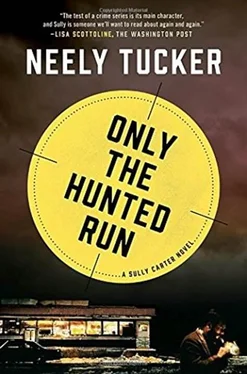

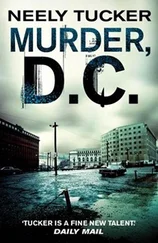




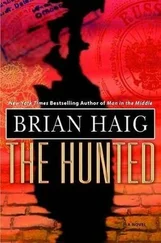
![Джон Макдональд - The Hunted [Short Story]](/books/433679/dzhon-makdonald-the-hunted-short-story-thumb.webp)

